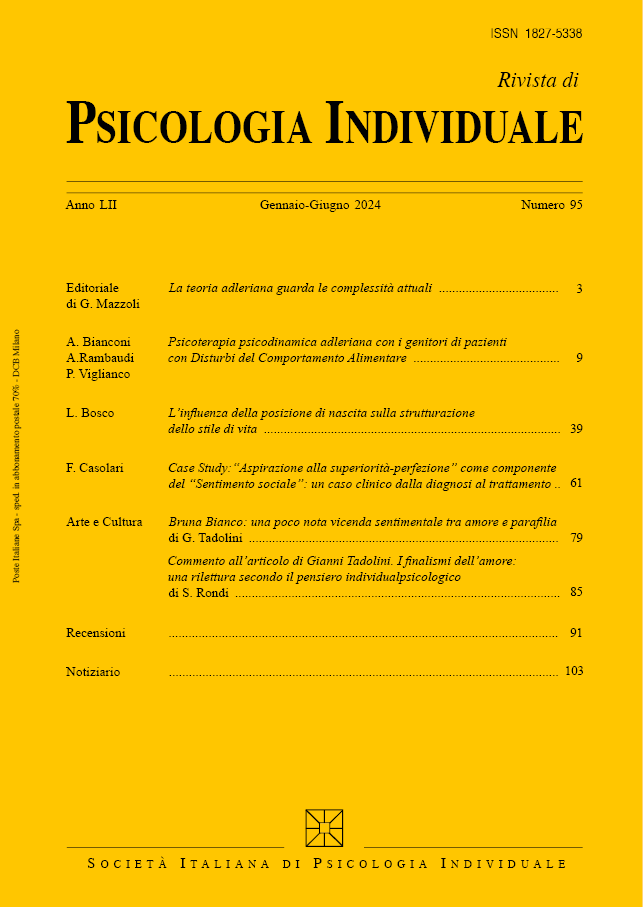Creative Self Development: Theoretical Reflections and Psychotherapeutic Implications
Keywords:
creative self, creative power, goal, social cooperation, psychopedagogy, psychotherapeutic treatmentAbstract
Starting from the concept of the creative self, understood by Adler as the sum of an individual's potentialities as well as the free creative power that uses these potentialities and directs them toward a goal, we aim to highlight which relational situations favor the expansion of creative power and the acquisition of a strong sense of identity: awareness of one's own subjectivity is, in fact, an essential element for achieving social cooperation. The relational modalities that, from birth, allow children to become aware of their individuality and develop their creative power to the fullest are those that allow them to experience the area of nonsense, the area of what is different from the Self, fueling the conviction that they can somehow act on reality rather than just having to fit into it to please it. In the same way, Adlerian psychotherapy must allow the Other to express their nonsense, their private logic, so that they do not lose the possibility of real insight, which is a creative act, and of subsequent autonomous development






